Centre for Educational Research and Innovation
CERI is dedicated to conducting high-quality research with a primary focus on education and training in Cambodia and the region to generate knowledge from qualitative and quantitative analyses rooted in data and evidence. Utilising the knowledge we generate, the centre actively facilitates policy discussions between both national and international researchers, policymakers, and practitioners through a series of workshops and policy dialogues held at both national and regional levels. In pursuit of our objectives, CERI maintain close collaborations with government agencies, educational and training institutions, civil society organizations (CSOs), and other pertinent stakeholders. This collective effort is to foster innovation and implement effective solutions in education and training. CERI's core activities revolve around research, capacity development, and policy engagement. Currently, our key areas of focus for research encompass educational technology, skills development, the advancement of quality education, and the promotion of inclusive education, spanning from K12 to higher education.
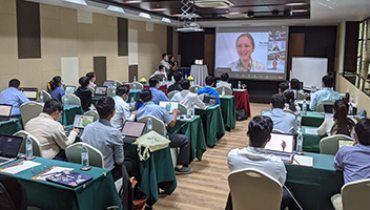
Thnal Udom Chomnes: Promoting Cambodian Higher Education Innovation
The Asia Foundation | The Department of Foreign Affairs and Trade | Ponlok ChammesThis three-year programme is supported by the Australian Department of Foreign Affairs and Trade (DFAT) through The Asia Foundation (TAF)’s Ponlok Chomnes Programme: Data and Dialogue for Development in Cambodia. In this programme...
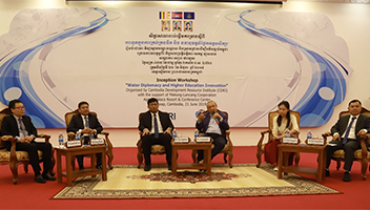
Building Regional Partnership for Higher Education Innovation
Lancang-Mekong CooperationWith a steady economic growth hovering between 7-8 percent over the past two decades, Cambodia achieved a lower-middle-income in 2015. Building on this progress, the government aspires to become an upper-middle-income country by 2...
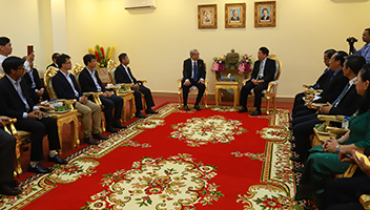
Research, Policy Dialogue and Capacity Building Programme on TVET
Swiss Agency for Development and Cooperation SwissCambodia has achieved strong growth in the past two decades, and the country has graduated to lower-middle-income status with a per capita income of about USD1,215 (2015). A feat that neighbouring Vietnam achieved in 2010 and Laos...
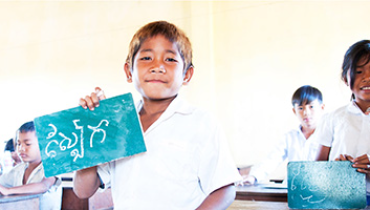
Education Research for Effective Policy Reforms
Swedish International Development Cooperation AgencyA five-year project called ‘Education Research for Effective Policy Reforms’ with a total funding of USD446,713 aims to produce independent, objective, high quality policy-relevant higher education research, and to maximise the ac...
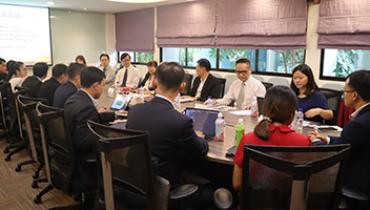
Higher Education Policy Research & Influencing in Cambodia
The Department of Foreign Affairs and TradeThe “Higher Education Policy Research & Influencing in Cambodia” was one of the major programmes implemented by the Education Unit of the Cambodia Development Resource Institute (CDRI). Receiving financial support from the Austral...

Gender Gap Reversal in Learning and Gender-Responsive Teaching in Cambodia
In the past two decades, Cambodia has been committed to the global agenda of ensuring that all children from all walks of life have access to education and quality learning opportunities. The focus was not only on access to education but also on gender parity and learning quality. Three years after the adoption of the Dakar Framework for Action in 2003, Cambodia adopted the national plan for Educa...
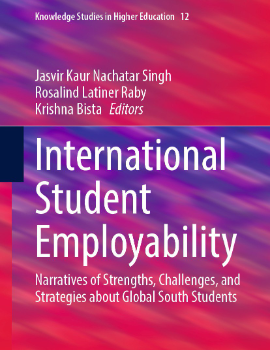
The Effects of International Experience on Self-Perceived Employability among Cambodian Students in China
This paper investigates the correlation between international experience in China and the self-perceived employability of Cambodian students using an explanatory mixed-methods approach. The findings suggest a positive correlation between international experience and students’ self-perceived employability, with technical knowledge and skills acquisition, employability skills enhancement, and person...
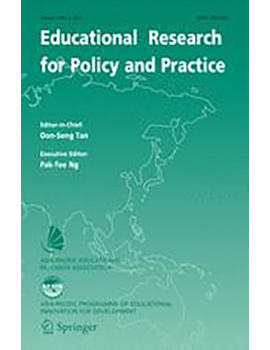
Upper Secondary School Tracking and Major Choices in Higher Education: To Switch or Not to Switch
This study aims to investigate the characteristics of students who switch versus those who do not switch when they transition from upper secondary to higher education. The data from 1338 students randomly selected from 21 HEIs in Cambodia in 2020 found that upper secondary school students are more likely than not to switch academic majors when they enter higher education. The tendency to switch is...
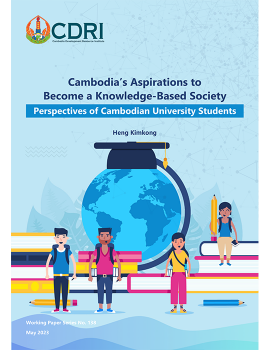
Cambodia’s Aspirations to Become a Knowledge-Based Society: Perspectives of Cambodian University Students
Background Cambodia envisages to become an upper-middle-income country by 2030 and a high-income country by 2050. The country also aspires to develop into a knowledge-based society (MoEYS 2014). To support these goals, it is crucial to consider the role of higher education institutions (HEIs), particularly universities, in training, research and service. However, research has shown that Cambodia...
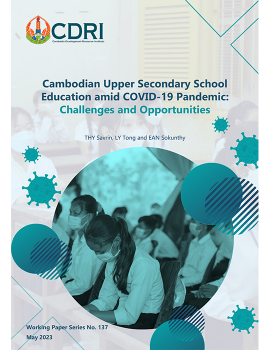
Cambodian Upper Secondary School Education amid COVID-19 Pandemic: Challenges and Opportunities
The outbreak of Coronavirus Disease 2019 (COVID-19) was announced as a pandemic by the World Health Organization (WHO) on 11 March 2020. Its presence has created significant disturbances across society and particularly within education. On 16 March 2020, as a preventative measure against the spread of COVID-19, the Royal Government of Cambodia (RGC) decided to close all educational institutions. H...
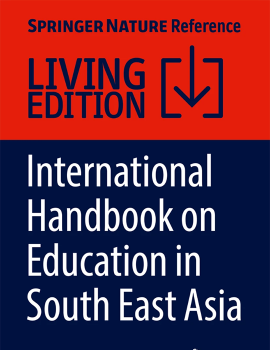
Vocational Education and Training in Cambodia
The Royal Government of Cambodia acknowledges the vital role of technical and vocational education and training (TVET) in developing a high-quality workforce to better respond to labor market demand and contribute to the national development agenda. In the past decade, with support from and collaboration with development partners, the Government has put effort into expanding access to and improvin...
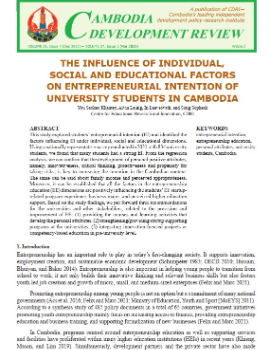
The Influence of Individual, Social and Educational Factors on Entrepreneurial Intention of University Students in Cambodia
This study explored students’ entrepreneurial intention (EI) and identified the factors influencing EI under individual, social and educational dimensions. Using a nationally representative survey conducted in 2021 with 834 university students, we found that many students had a strong EI. From the regression analysis, we can confirm that the development of personal positive attributes, namely, inn...
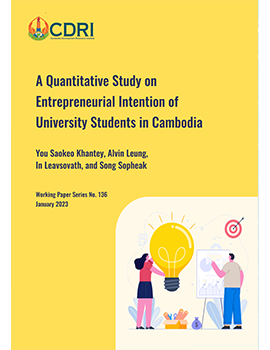
A Quantitative Study on Entrepreneurial Intention of University Students in Cambodia
Entrepreneurship is crucial to advancing the economy of Cambodia and fostering the development of society. The Royal Government of Cambodia has recognised the importance of entrepreneurship and included the promotion and entrepreneurship education in multiple policies and strategy. Universities and higher education institutes have been more active in providing entrepreneurship education (EE) as we...
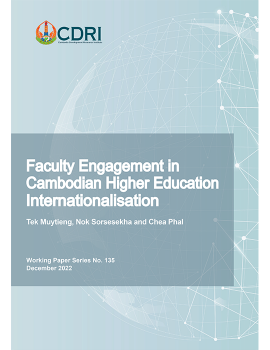
Faculty Engagement in Cambodian Higher Education Internationalisation
Internationalisation is known to contribute to higher education development, particularly through the integration of international, inter-cultural or global dimensions into the purpose, functions, or delivery of higher education institutions (Knight 2004). Within this inter-connected world, higher education institutions are pressured to produce quality human resources with global citizenship...

Family Background as the Determinant of University Student's Technological Readiness: Evidence from Cambodia
While digital transformation around the globe has significantly gained momentum and speed, embracing technologies in our daily life is now beyond question. In this regard, we need to ask whether or not individuals are ready to accept and use technologies when provided and what really affects one's technology readiness. The main objective of this study is to understand the role of parents and famil...
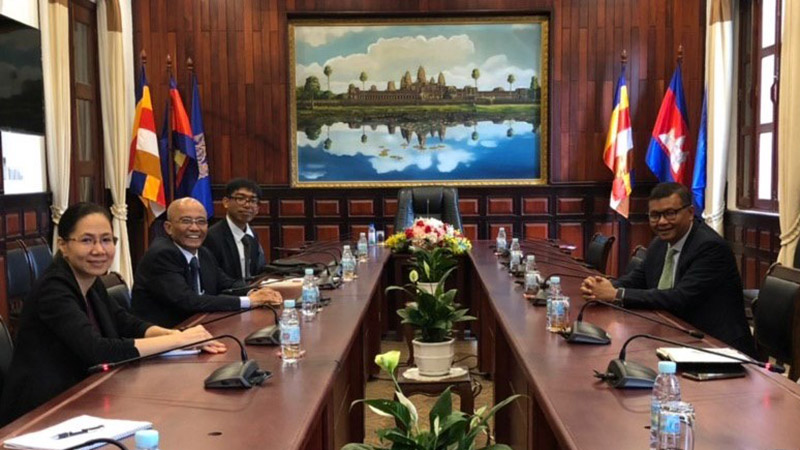
H.E Dr. Hang Choun Naron, Minister of MOEYS met with CDRI Executive Director
Tuesday, July 28, 2020, at 14.30-15.20, H.E Dr. Hang Choun Naron, Minister of MOEYS met with CDRI Executive Director, Research Director, Education Research and Innovation Center Director, and Senior Communication Officer to discuss the cooperation plan between MoEYS and CDRI in the education and youth research for development. H.E Minister shared his views and strategic focus on the innovative education and curriculum, e-learning, and skill asset...
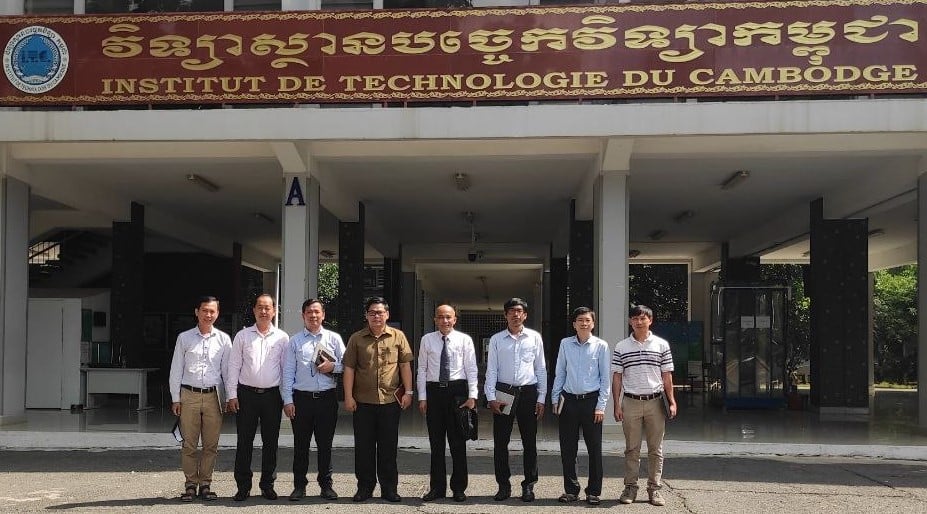
Director of the Institute of Technology of Cambodia
July 9, 2020 morning, the Director of the Institute of Technology of Cambodia, and senior ITC management met with CDRI ED and CDRI Director of Center for Educational Research and Innovation. The two institutes discussed the potentials for deepening the collaboration in skilled workforce development, Artificial Intelligence, and Digital Skill Needs and Labour Market.
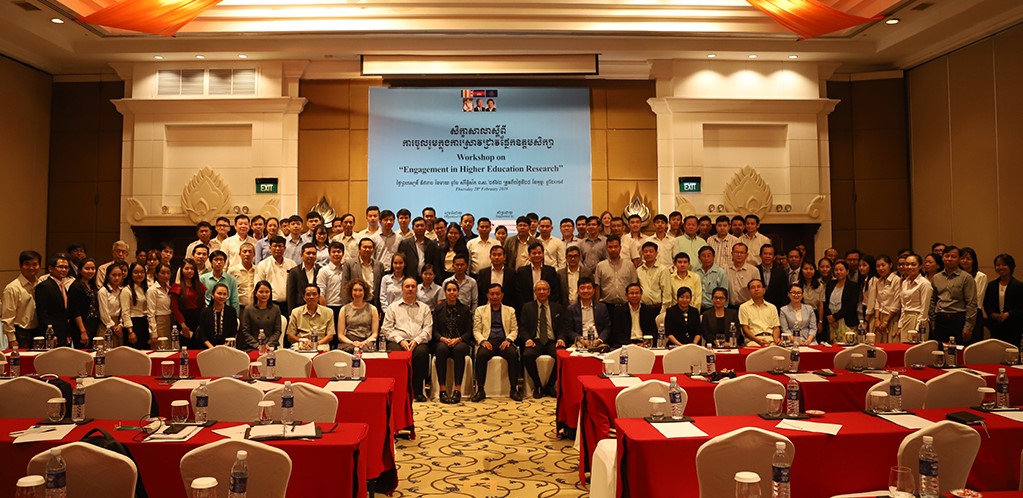
Engagement in Higher Education Research
Engagement in Higher Education Research was held on 28th February 2019 at the Great Duke Phnom Penh. The workshop concluded a three-year research programme on Higher Education Policy Research and Influencing in Cambodia (2016-2018) – the first development project cycle funded by the Department of Foreign Affairs and Trade (DFAT) of the Australian Government. It highlighted the higher education research findings on five key themes, namely (1) STEM...
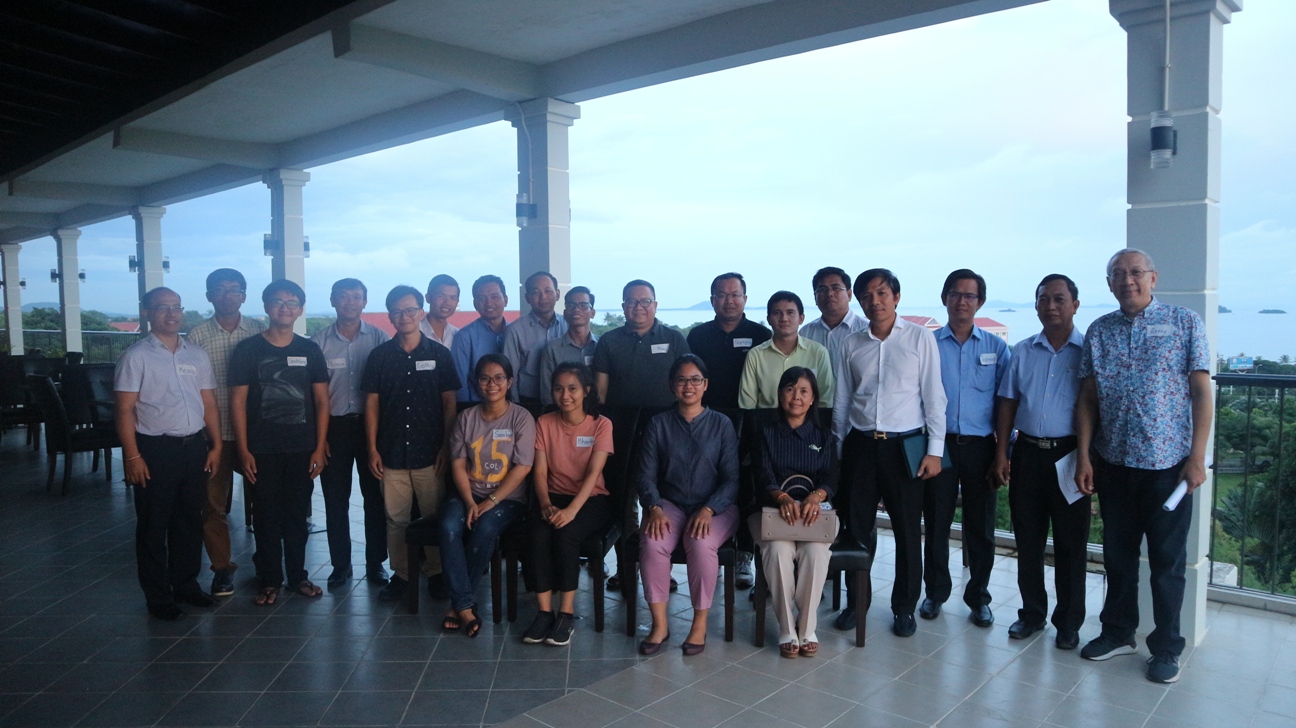
The March towards Industry 4.0: Skills for Industrial Growth
A high level meeting on “The March towards Industry 4.0: Skills for Industrial Growth” was organised to provide a platform to discuss future business development in some key sectors and skills demand and workforce training to support business growth and industrial transformation.Senior leaders of TVET providers and CEOs/HR directors from private sector had productive discussion on building partnerships and matching skills training with market nee...
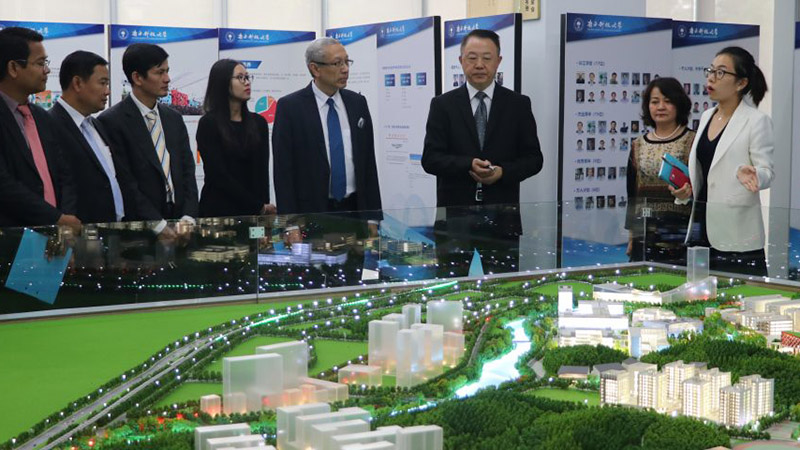
CDRI coordinates a field trip to Shenzhen in context of TVET policy research programme funded by SDC
Tour visit to the Southern University of Science and Technology of China. The Cambodian delegation is made of government officials, CDRI researchers, SDC (Swiss Agency for Development and Cooperation) program coordinator and private sector representative. 29 March 2018











